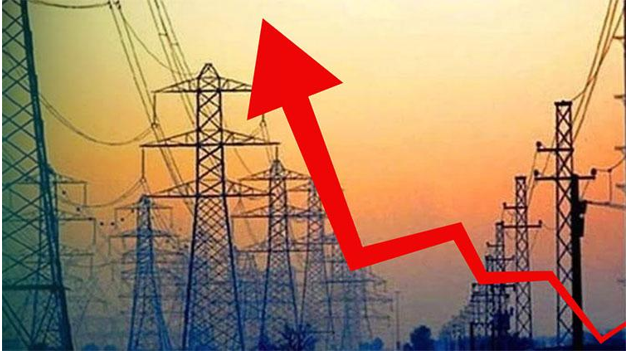INP-WealthPk
Muhammad Saleem
Industrialists attached with the textile sector are seeking alternative ways to keep their businesses afloat as skyrocketing electricity rates leave them in a bind. Salamat Ali, an industrialist, said, “We are facing an outlandish situation owing to the unpredictable electricity and fuel rates, which plague the entire business cycle of the country.” “The crux of the matter is that rulers are still taking cosmetic measures rather than taking the bull by the horns to strengthen the national economy,” he said, apprehending that the policymakers wouldn’t be able to hold their ground if industrialists started laying off their workers. Talking to WealthPK, he said, “To avoid unreasonable heavy electricity bills, the industrialists are reducing reliance on energy-consuming machines and seeking alternative ways. Just take a look at the energy consumption statistics of Faisalabad, Lahore and Karachi industrial areas, and you will be surprised to know that consumption has drastically declined.
This is happening owing to skyrocketing electricity rates.” “Such a situation will push the country towards economic disaster, which will ultimately lead to widespread unemployment,” he said. Dr Nadeem, a teacher at the Government College University Faisalabad, told WealthPK that they taught their students on how to thrive in the emerging challenges, ‘but the pupils are now pulling our legs about how they can survive or thrive amid the severe energy crisis prevailing in Pakistan’. “Our electricity supply is unstable and its rates are sky-high, so how can industrialists keep their heads above water amid the changing world scenario,” he said. Without ensuring a reliable supply and affordable rates, they couldn’t boost their earnings or create jobs, he added. “Electricity shortages are crippling our production capabilities, and their rates are forcing the millers to operate below capacity,” Nadeem said.
He said frequent power suspensions and voltage fluctuations were damaging the equipment, making it impossible for the millers to stick to the plan devised for production. Abid Ali, another industrialist, said they had pressed the government to introduce some incentives to revitalise the sick units, but the authorities had done nothing fruitful. He said electricity, gas, and fuel, which were a lifeline for the textile sector, were now going beyond the reach of millers, who are struggling to right the ship. He said without reconsidering the agreements with the independent power producers (IPPs), the policymakers would be unable to ensure affordable electricity for consumers. “The rulers must take drastic steps to resolve the issues of the industrial sector.”
To ensure jobs and development of the national economy, he said the government must introduce alternative energy sources or risk losing ground in foreign markets, which is a major source of forex earnings. Salamat Ali, the industrialist, said steep electricity tariffs and the prevailing uncertainty in the country were making it difficult for them to quote rates to their foreign buyers. He said without ensuring a viable financial position, they couldn’t move forward with their foreign clients. He said millers were forced to lay off their workers and reduce production to manage expenses. “We cannot operate our units by borrowing money. When millers are shouldering multiple taxes, it's the responsibility of the government to create a level playing field for them,” he said. “Gone are the days when the policymakers can befool people by raising hollow slogans; they have to take practical measures to keep the wolf from the door,” he said.

Credit: INP-WealthPk













